Geopolitics: What does the energy transition mean for international relations? NGW Magazine Vol. 4, Issue 3 is Available
Available Exclusively to Premium Subscribers:
Volume 4, Issue 3 - February 4, 2019
|
NGW Premium: For Professionals who seek in-depth understanding of current developments. Includes NGW Magazine and Exclusive Original Content. Have the Inside Track.
$25.00 per month, or annually at $198.00
NGW Magazine. Exclusive Content. The Inside Track.SUBSCRIBE TODAYNGW Premium includes:
|
In this Issue:EDITORIAL: ENLIGHTENED SELF-INTEREST The steps that some of the majors are taking to pacify activist shareholders with a green agenda are long overdue. But when one party consistently takes the moral high ground it is difficult to have a reasoned conversation.
The International Renewable Agency (Irena) issued a report in January 2019, A New World: Geopolitics of Energy Transformation (GET). What prompted the report was awareness “that the growing deployment of renewables has set in motion a global energy transformation with significant implications for geopolitics,” said Irena’s director-general, Adnan Amin.
The French government is backing measures to promote the production of biomethane, after French secretary of state for ecology transition, Emmanuelle Wargon, met with representatives from the country's emerging biomethane sector on January 14. Wargon, whose brief includes energy, had requested the meeting to get an update on the progress made so far by the biomethane work group on goals adopted in March 2018 to speed up biomethane penetration as a renewable fuel.
The UK has had a few false starts with carbon capture and storage projects using third-party, industrial emissions, but now a project is closer to completion than any of its predecessors. Missing is the crucial support mechanism, which also proved a fatal problem for past schemes. The UK government’s Department for Business, Energy and Industrial Strategy (Beis) expects to have a plan for that this year, though.
The twin-Caribbean-island nation Trinidad & Tobago continues to fight a three-pronged battle at home to stop declines in natural gas reserves, production and LNG export movements. It is caught between the ongoing shale revolution to the north in the US and another in its early stages and gearing up to really blast off further to the south in Argentina.
Latin America provides more than one reminder that LNG markets are not necessarily permanent. In the Middle East, Israel and Egypt have shown that LNG imports can come and go, both ramping demand up quickly through floating storage and regasification units (FSRUs) and then ramping down again on the back of increased domestic gas supply as major gas finds in the east Mediterranean came on stream.
Ever since his election to South Korea’s presidency in May 2017, Moon Jae-in has been advocating green policies, moving away from coal and also nuclear. He initiated preparation of new energy policies in 2017 to put this into effect. But resistance and power shortage during the summer of 2018 brought home some of the challenges facing this policy.
International oil companies face a challenging year, according to new research by global quality assurance and risk management company, DNV GL It shows that business leaders expect the industry to commit to greater investment to meet hydrocarbon demand.
Azerbaijan produced 5.8% more sales gas in 2018 than it had in 2017, reaching 19.21bn m3, of which 9.726bn m3 were exported. Exports however grew much faster, at 15.5% more on year, Socar’s vice-president for oil and gas production and transportation Rahman Gurbanov told NGW.
The CEO of Klaipedos Nafta (KN), the company operating Lithuania’s LNG terminal has given a very upbeat and ambitious forecast for its short-term prospects. Mindaugas Jusius raised eyebrows with his claims, although others in the world of politics can be found who share his bullish views.
Many companies are still nervous about committing their shipping to LNG, and until the tipping point is reached, banks will take a lot of persuading. |
|---|


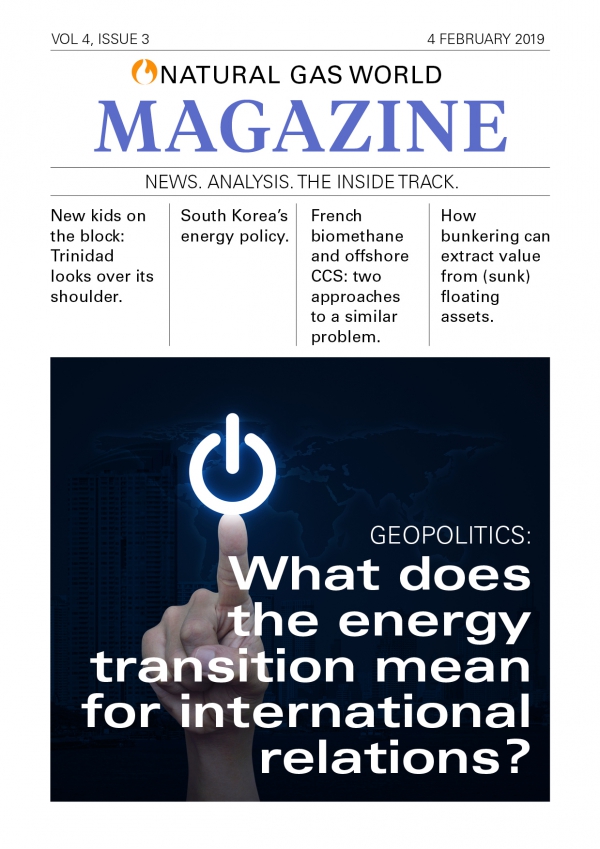

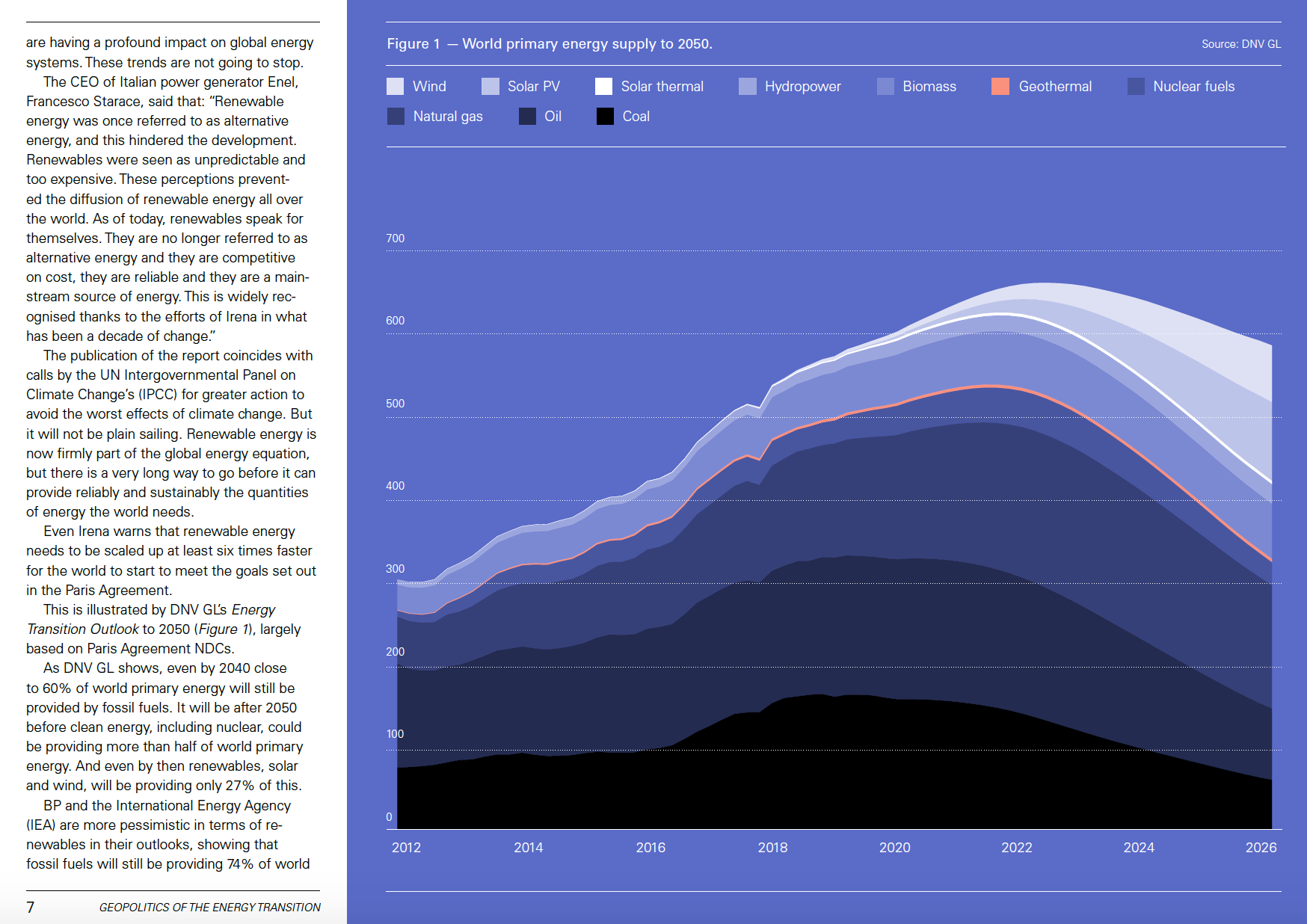 GEOPOLITICS OF THE ENERGY TRANSITION
GEOPOLITICS OF THE ENERGY TRANSITION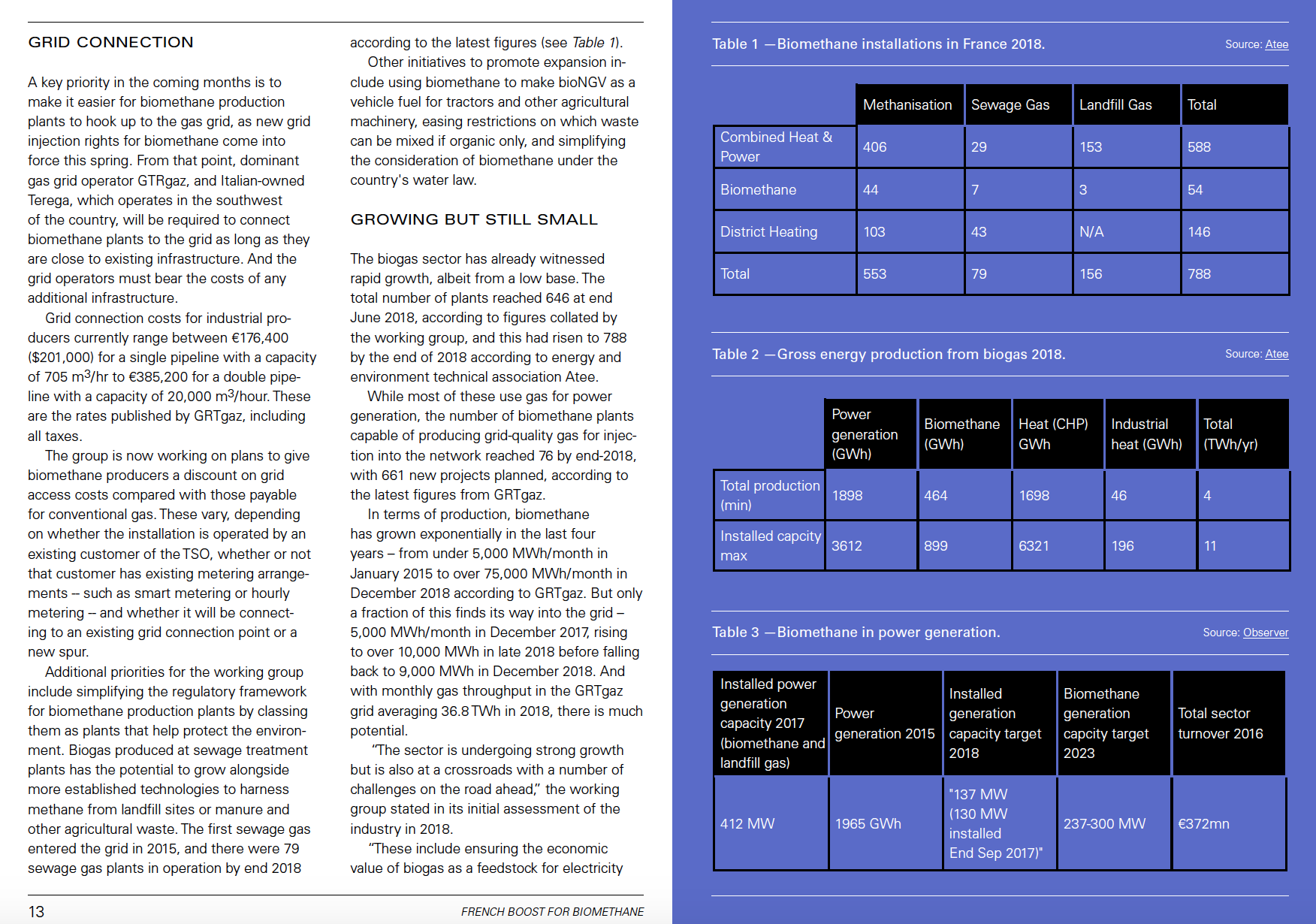 FRENCH BOOST FOR BIOMETHANE
FRENCH BOOST FOR BIOMETHANE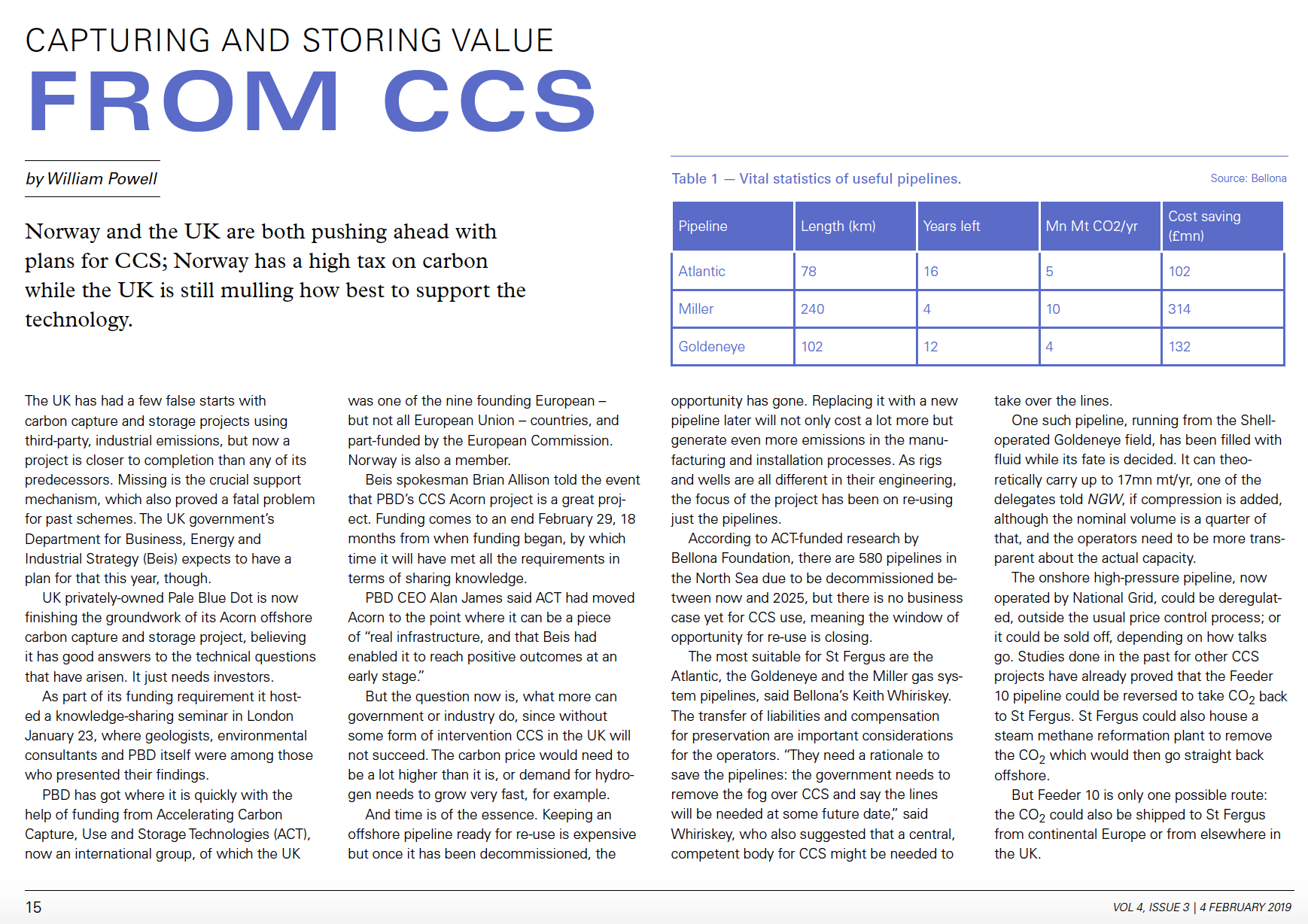 CAPTURING AND STORING VALUE FROM CCS
CAPTURING AND STORING VALUE FROM CCS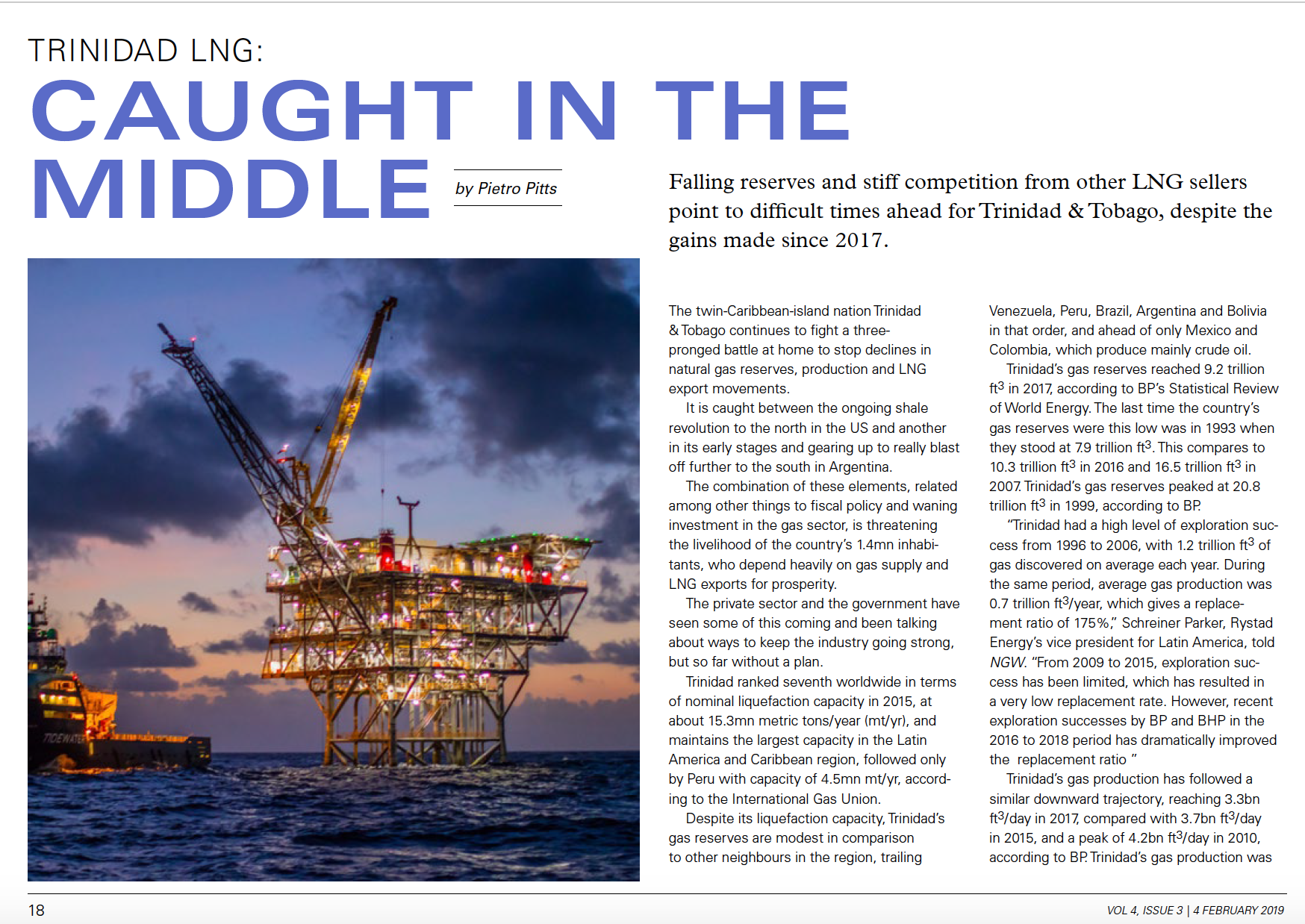 TRINIDAD LNG: CAUGHT IN THE MIDDLE
TRINIDAD LNG: CAUGHT IN THE MIDDLE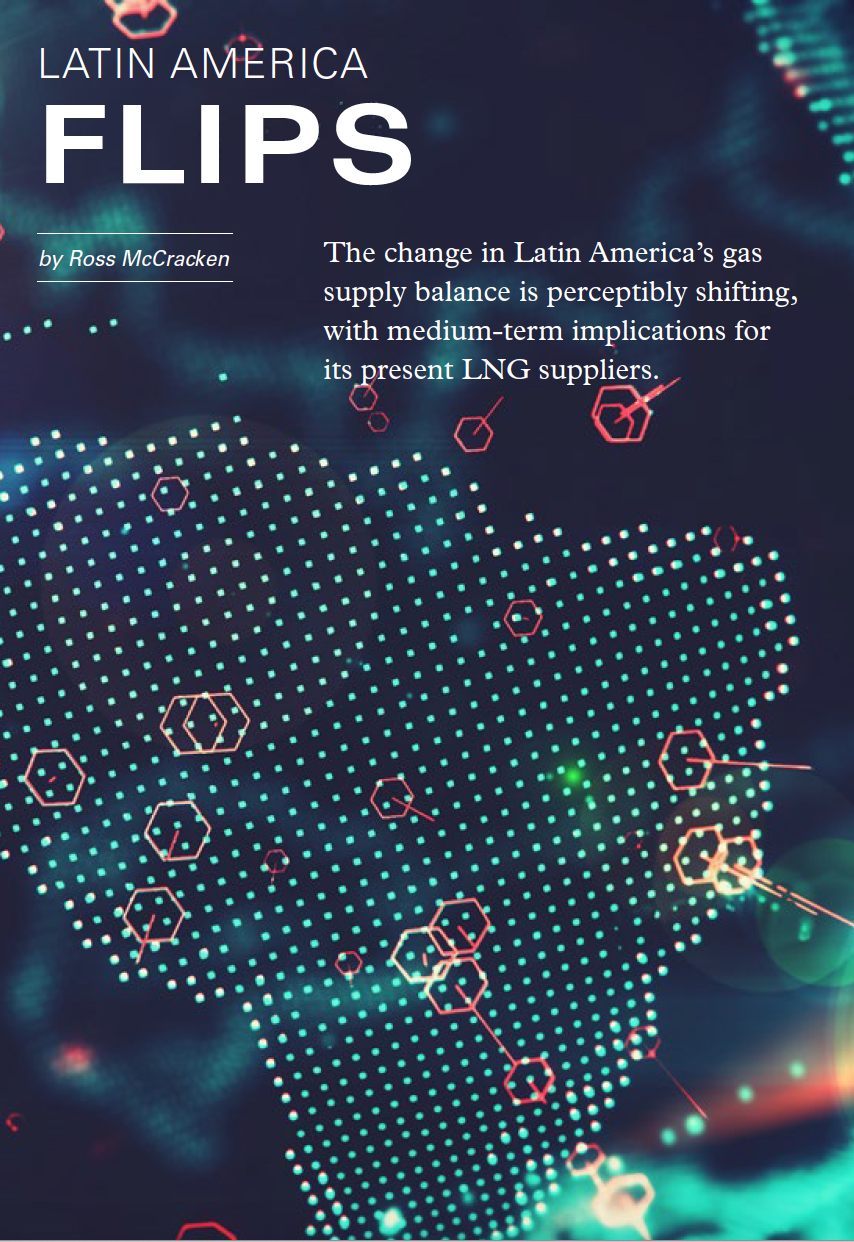 LATIN AMERICA FLIPS
LATIN AMERICA FLIPS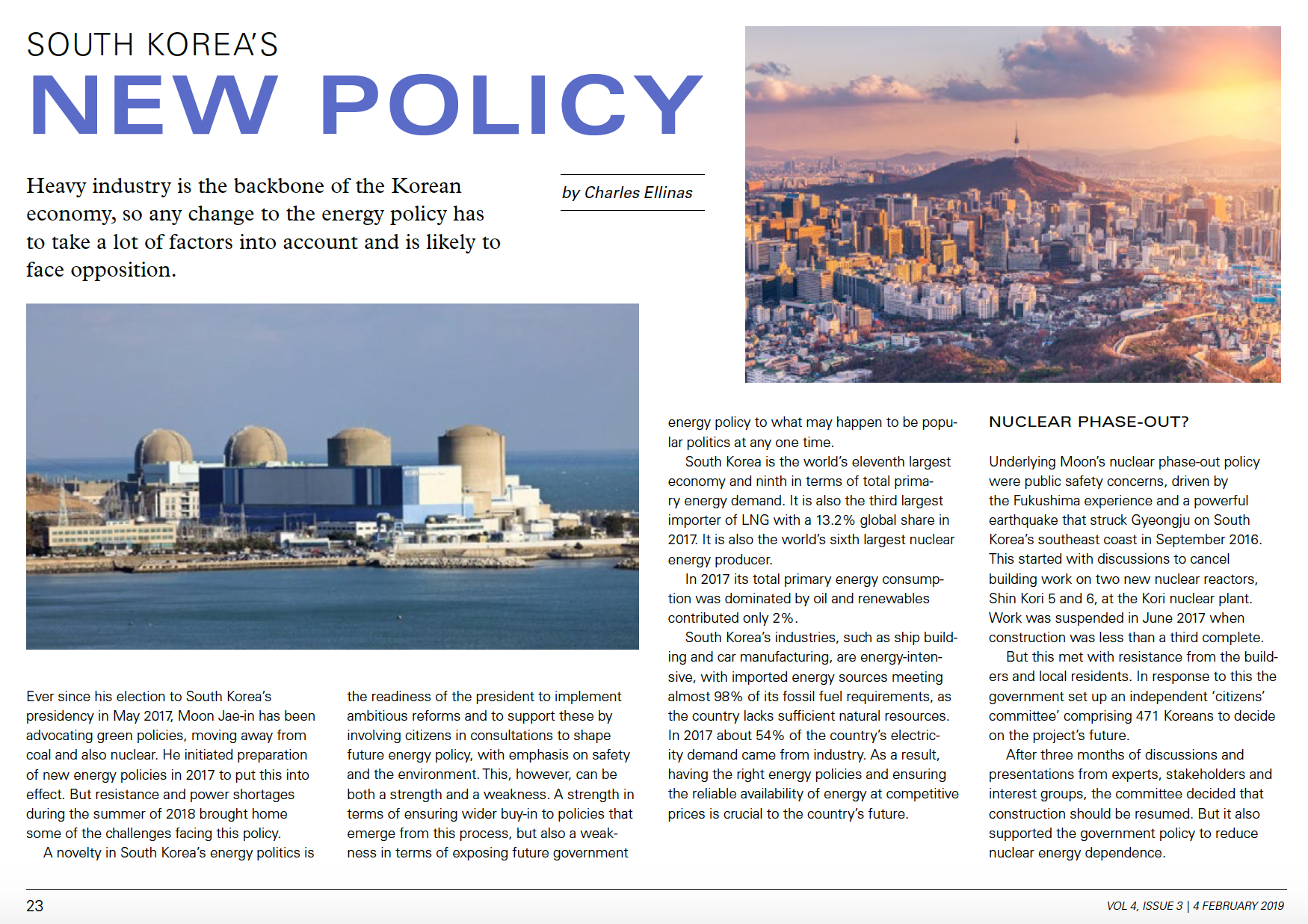 SOUTH KOREA’S NEW POLICY
SOUTH KOREA’S NEW POLICY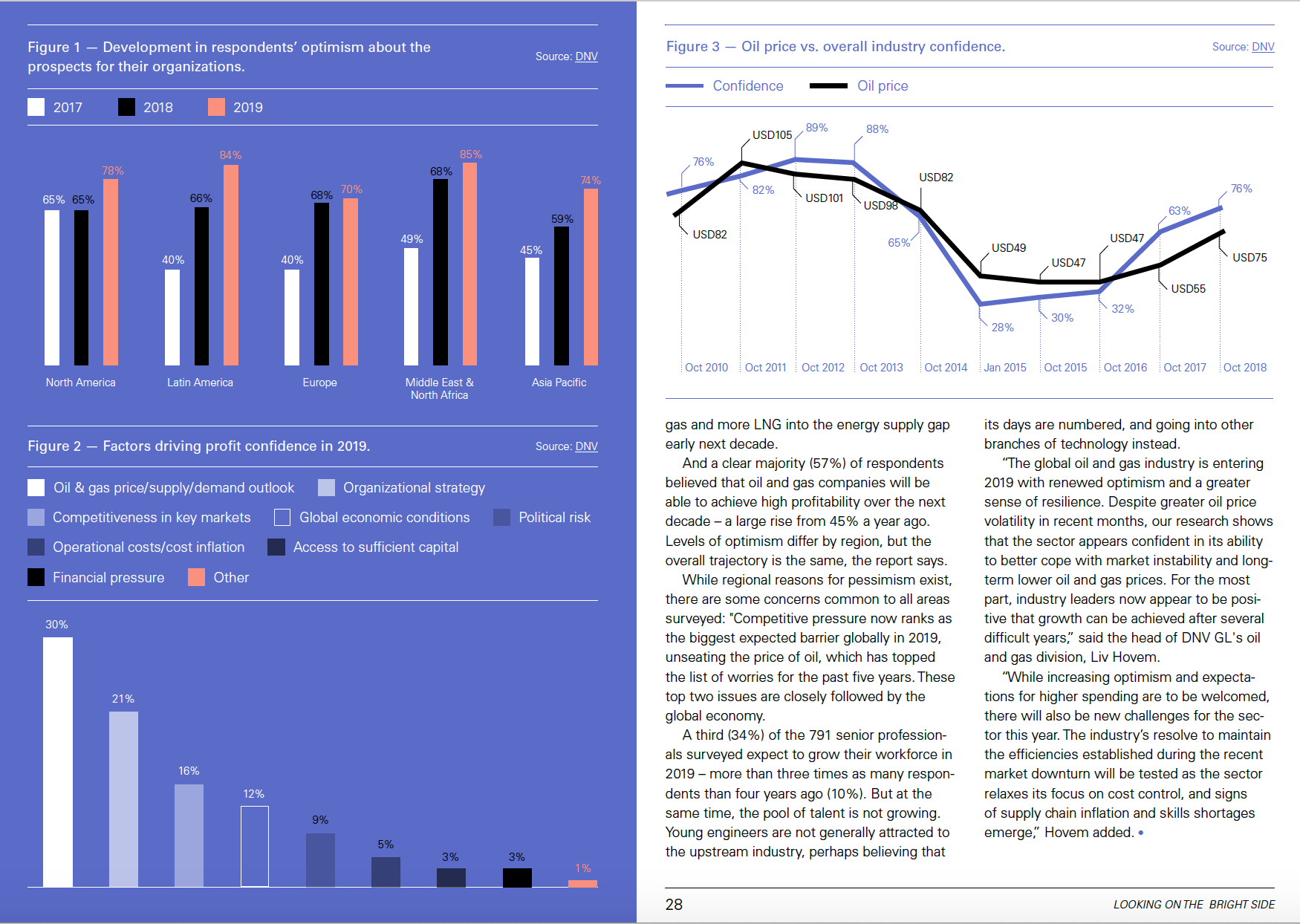 LOOKING ON THE BRIGHT SIDE
LOOKING ON THE BRIGHT SIDE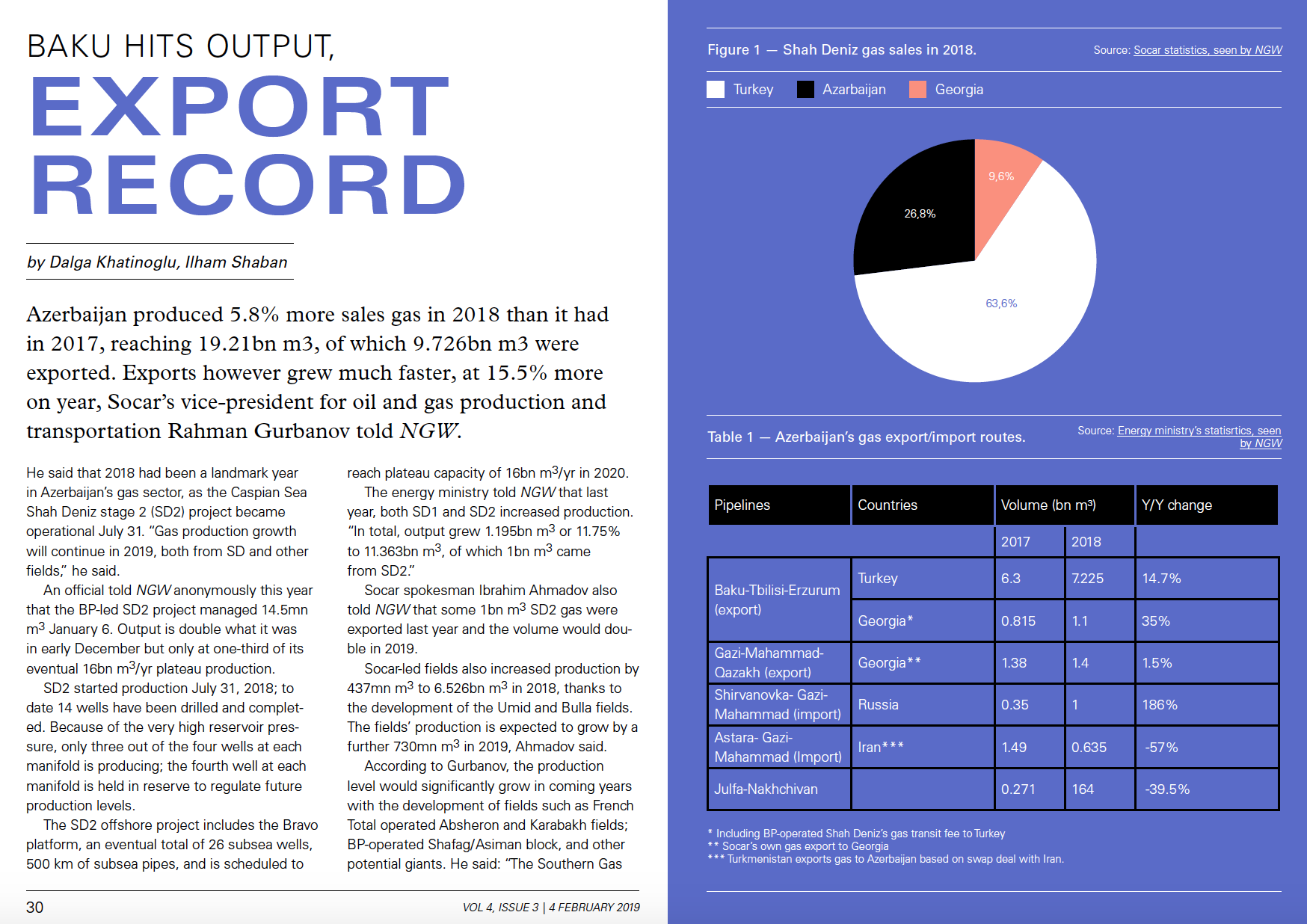 BAKU HITS OUTPUT, EXPORT RECORD
BAKU HITS OUTPUT, EXPORT RECORD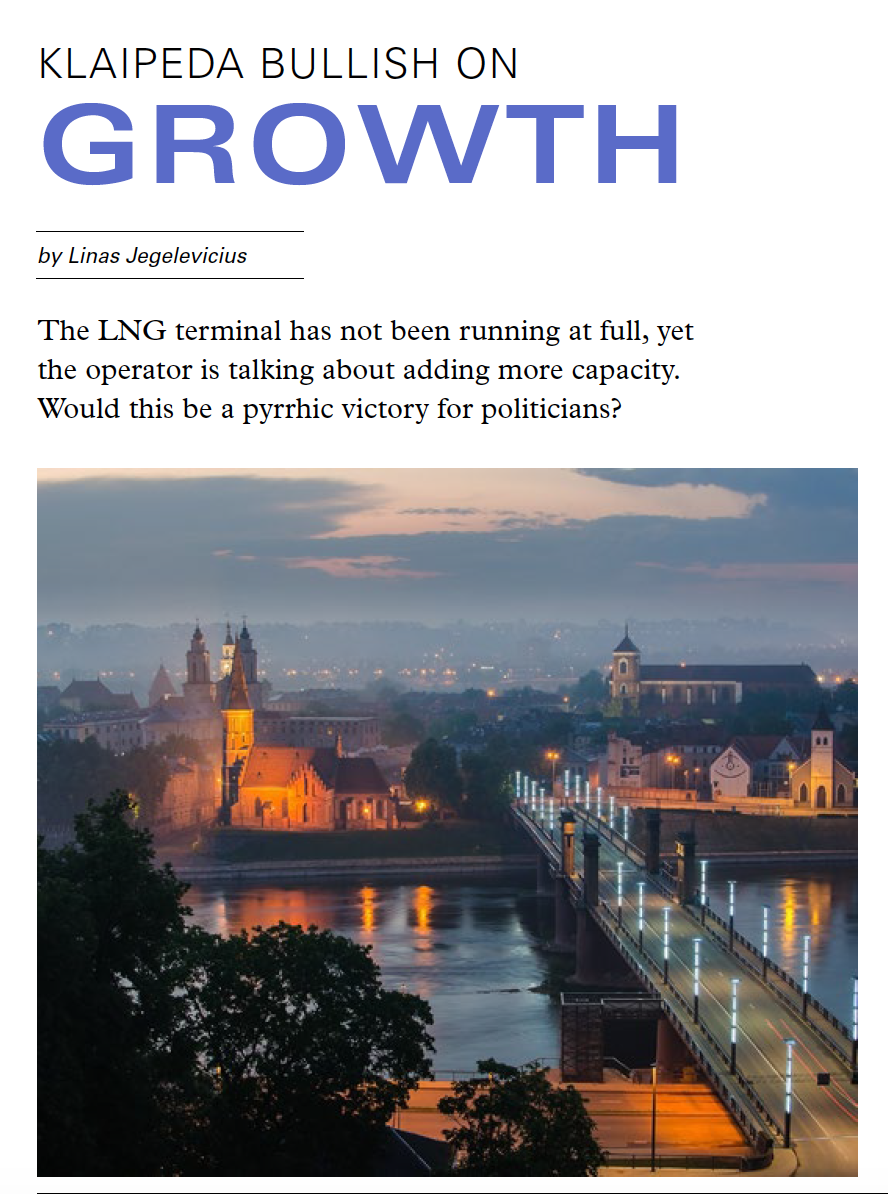 KLAIPEDA BULLISH ON GROWTH
KLAIPEDA BULLISH ON GROWTH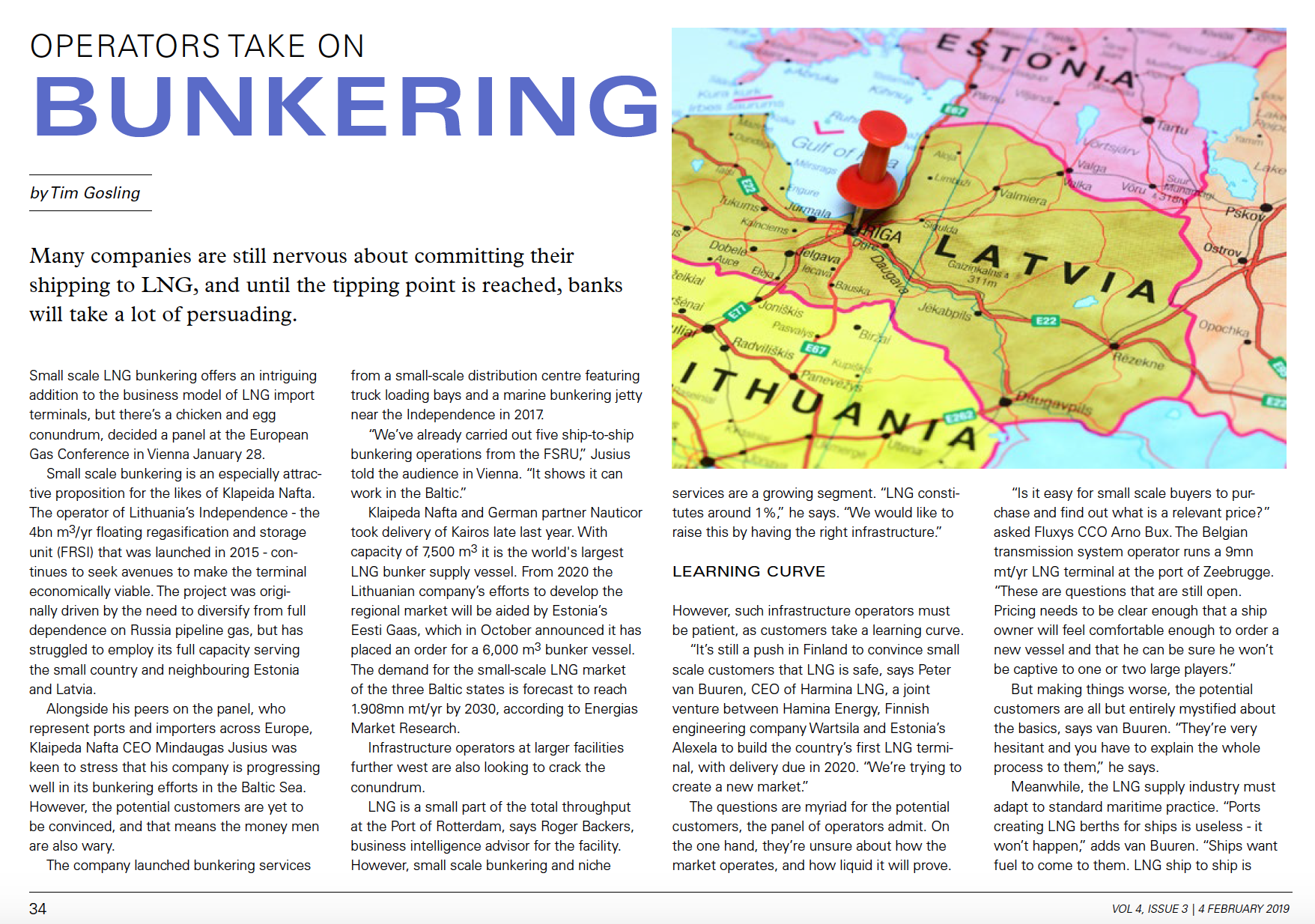 OPERATORS TAKE ON BUNKERING
OPERATORS TAKE ON BUNKERING